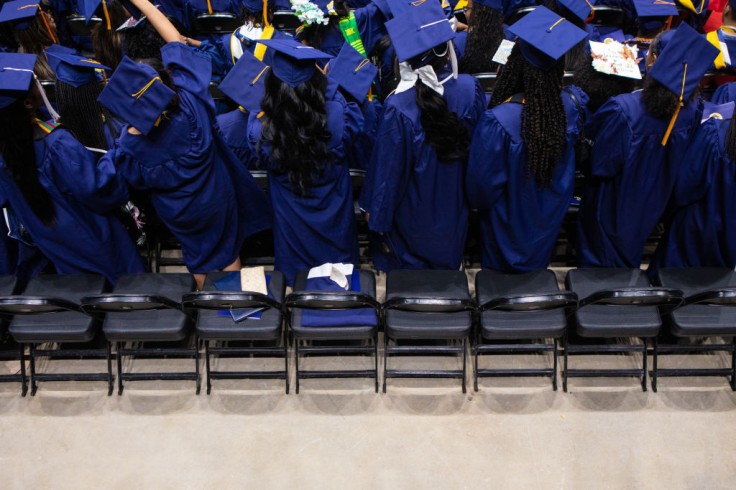
A Colorado high school senior's request to wear a sash adorned with the flags of the United States and Mexico during her upcoming graduation has been denied by a judge.
The ruling came after the student, Naomi Peña Villasano, filed a lawsuit against her school district, claiming a violation of her constitutionally protected right to free speech.
The decision has sparked a debate over cultural expression and First Amendment rights within educational institutions.
Lawsuit Challenges Graduation Regalia Policy
According to NBC News, Naomi Peña Villasano, an 18-year-old senior at Grand Valley High School in Parachute, Colorado, had sought permission to wear a sash bearing the US and Mexican flags as a representation of her dual heritage during the graduation ceremony.
However, school officials, including Principal Kelly McCormick and Superintendent Jennifer Baugh, denied her request.
In response, Villasano, with the support of the Mexican American Legal Defense and Educational Fund (MALDEF) and the law firm Greenberg Traurig, LLP, filed a lawsuit against Garfield County School District 16.
The lawsuit argued that the district's decision infringed on Villasano's right to free speech.
The school district, while acknowledging the absence of a written policy on regalia, maintained that it sought to avoid potential controversies and offensive displays by prohibiting any flags on graduation attire.
The defendants justified their stance by referring to the possibility of students wearing symbols like the Confederate flag, which could cause offense.
Judge's Ruling and Justification
According to CNN, on Friday, Judge Nina Y. Wang of the U.S. District Court for the District of Colorado ruled against Villasano's motion, denying her request to wear the flag sash at graduation.
Judge Wang pointed out that the sashes or cords typically allowed at graduation represented membership in recognized organizations, academic achievements, military service, or cultural heritage associated with Native American or Pacific Islander tribes.
The judge emphasized that the school's policy allowed for the display of the flag of any United Nations-recognized country on the graduation cap.
Judge Wang considered the wearing of regalia at the graduation ceremony a school-sponsored speech, indicating the school's approval of the messages conveyed.
The judge deemed the district's interest in promoting unity and avoiding potential controversies legitimate.
She further noted that Villasano would not suffer irreparable harm by expressing her cultural heritage in alternative ways, such as by decorating her graduation cap.
Debates on Cultural Expression and First Amendment Rights
The Associated Press reported that the ruling has sparked a larger conversation about the balance between cultural expression and the regulation of attire in educational settings.
Supporters of Villasano argue that she should have the right to express her identity and heritage through her choice of attire during a momentous event like graduation.
They contend that the school district's prohibition unfairly singles out certain cultural symbols while permitting others.
On the other hand, proponents of the school district's policy assert the need for uniformity and neutrality during graduation ceremonies.
They argue that a standardized dress code promotes inclusivity, prevents potential conflicts, and ensures a focus on academic achievements rather than personal and cultural expressions.
The case raises important questions about the extent to which educational institutions can regulate student attire and expression without infringing on their constitutional rights.
In response to the ruling, Naomi Peña Villasano expressed disappointment but vowed to continue her fight for cultural expression, not just for herself but for future graduates.
The Mexican American Legal Defense and Educational Fund also stated its commitment to protecting students' rights to express their heritage.